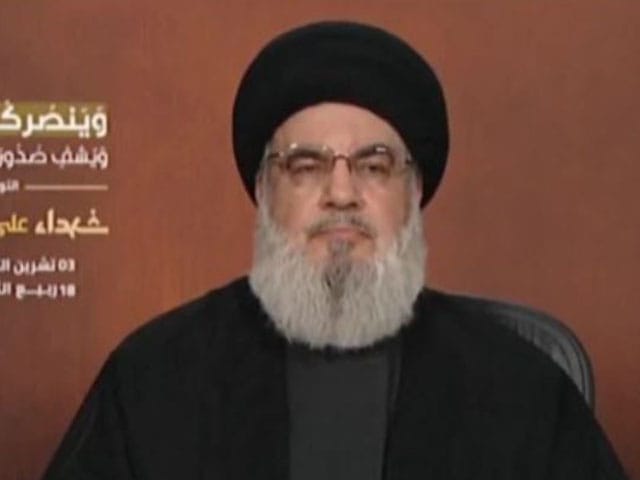In the southern Beirut suburb of Dahieh, a Hezbollah ceremony commemorating the fourth anniversary of the death of Qasem Soleimani, commander of the Quds Force of the Islamic Revolutionary Guard Corps and founder of a global terrorist network supporting Iran, took place.
Al-Manar TV, linked with Hezbollah, reported that the terrorist group's leader, Hassan Nasrallah, addressed thousands of his supporters on television.
Nasrallah began his address with condolences. He pointed out it has been four years since Soleimani's death, talked about the explosions and casualties at a memorial ceremony for Soleimani in Kerman and the assassinations of senior IRGC Officer Sayyed Reza Mousavi in Syria and one of Hamas' leaders, Saleh al-Arouri. He reminded the audience of the honor of becoming a martyr and dying for one's ideals.
Nasrallah denounced the killing of Saleh al-Arouri as "blatant Israeli aggression against southern Beirut" and offered condolences to his deputy, Ismail Haniyeh, whose subordinate was killed.
He spoke of the "resistance axis" and the countries comprising it, asserting that each country independently decides when to start or stop military actions. "We consult and discuss, but each participant makes its decision independently," he stated.
"I previously said that the Operation Al-Aqsa Flood (Palestinian name for Hamas' attack on October 7) is a Palestinian war, but this does not mean we stay distant; our fighters die every day," Nasrallah said.
Nasrallah claimed that attempts to normalize relations between Israel and the Arab world had suffered a "fatal blow."
Nasrallah hailed the "tremendous" results of Hamas' recent confrontation with Israel, claiming that it led to a "revival in the forgotten Palestinian cause." He asserted that the war increased support for Palestinian resistance groups among the autonomy's population. The war in Gaza dealt a blow to Israel's image and made the normalization of relations between Israel and some Arab countries impossible.
Nasrallah claimed that events in Gaza showed that the IDF's Air Force is incapable of determining the outcome of battles, and Israel felt a real threat to its existence.
He also named the deepening divide within Israeli society as a positive outcome of the war. "It is impossible to remain silent about what happened yesterday. If Israel starts a war, it will regret it," said Nasrallah.












